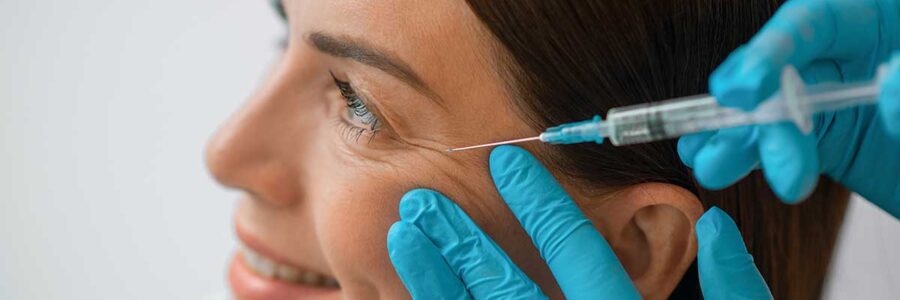In our relentless pursuit of youth and beauty, Botox has become a prevalent choice. This treatment, meant to diminish wrinkles and lines, is a modern-day elixir of youth. However, it’s crucial to examine what Botox truly entails and the potential risks involved, especially from a holistic health perspective. This article explores the hidden dangers associated with Botox and introduces natural alternatives that align with holistic principles.
Understanding Botox
Botox, or Botulinum toxin, is a neurotoxic protein from the Clostridium botulinum bacterium, infamously known for causing botulism.[1] In cosmetic procedures, it’s used in tiny doses to paralyze muscles, temporarily smoothing wrinkles and fine lines. Although its aesthetic use began only a few decades ago, the toxin has been around for over a century, with applications in treating muscle spasms and migraines.[1] Despite its popularity, the idea of injecting a toxin, even in small amounts, raises significant holistic health concerns. The human body is intricately interconnected, and introducing foreign substances, especially toxins, might have unforeseen impacts on overall health and well-being.
The Hidden Dangers
Botox’s allure is undeniable, yet it comes with potential hazards. Some individuals may only experience minor side effects like bruising or discomfort, but others might encounter severe complications such as muscle weakness, speech problems, or even toxin spread, which can lead to conditions like botulism.[2] The long-term effects of Botox, particularly its impact on facial expressions and emotional expression, are still not completely understood. There’s also a risk of developing resistance to Botox with repeated use, necessitating more frequent and higher doses.[3]
Holistic Health Viewpoint
From a holistic health perspective, Botox is concerning. This philosophy emphasizes the balance of body, mind, and spirit. By freezing facial expressions, Botox can disrupt this balance and potentially affect emotional communication. Holistic health is about nurturing the body with natural, life-enhancing practices, and regular injections of a neurotoxin contradict this principle.[3]
Natural Alternatives to Botox
For those seeking more natural, non-invasive anti-aging solutions, facial acupuncture and Gua Sha are excellent options. Facial acupuncture promotes skin health and rejuvenation by enhancing blood circulation and stimulating collagen production, which can lead to a more youthful complexion.[4] Gua Sha, a traditional Chinese technique, involves scraping the skin with a smooth-edged tool to improve circulation and lymphatic drainage, reducing puffiness and fine lines.[5] Both methods honor the body’s natural rhythms and healing capabilities, offering beauty benefits that align with holistic health principles.
Conclusion
While Botox may offer a quick fix for aging signs, its potential risks and disruption to holistic health principles warrant caution. Embracing natural alternatives like facial acupuncture and Gua Sha aligns with holistic health principles and promotes overall well-being and a deeper connection with our bodies. True beauty, in a holistic sense, comes from methods that support and enhance our health rather than compromising it for temporary aesthetic improvements.
References:
- “Botulism.” World Health Organization,www.who.int/news-room/fact-sheets/detail/botulism.
- Witmanowski, Henryk, and Katarzyna Błochowiak. “The whole truth about botulinum toxin – a review.” Postepy dermatologii i alergologii vol. 37,6 (2020): 853-861. doi:10.5114/ada.2019.82795
- Lewis, Michael B. “The interactions between botulinum-toxin-based facial treatments and embodied emotions.” Scientific reports vol. 8,1 14720. 3 Oct. 2018, doi:10.1038/s41598-018-33119-1
- Aesthetic Surgery Journal, Volume 25, Issue 4, July 2005, Pages 419–424,https://doi.org/10.1016/j.asj.2005.05.001
- Nielsen, Arya et al. “The effect of Gua Sha treatment on the microcirculation of surface tissue: a pilot study in healthy subjects.” Explore (New York, N.Y.) vol. 3,5 (2007): 456-66. doi:10.1016/j.explore.2007.06.001


